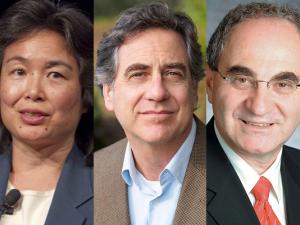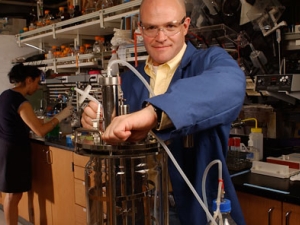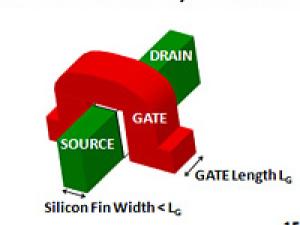

Research Bio
Dr. Tsu-Jae Liu conducts research in advanced materials, fabrication processes, and devices for integrated circuits used for computing and memory. She has authored or co-authored over 560 publications and holds close to 100 patents. Her research has garnered many honors including the Ross M. Tucker AIME Electronics Materials Award (1992) for seminal work in polycrystalline silicon-germanium thin films, the DARPA Significant Technical Achievement Award (2000) for development of the FinFET (the transistor design used in all leading-edge computer chips today), the IEEE Kiyo Tomiyasu Award (2010) for contributions to nanoscale MOS transistors, memory devices, and MEMs devices, the Electrochemical Society Dielectric Science and Technology Division Thomas D. Callinan Award (2011) for excellence in dielectrics and insulation investigations, the Intel Outstanding Researcher in Nanotechnology Award (2012), the Semiconductor Industry Association University Researcher Award (2014), and the IEEE Aldert van der Ziel Award (2016).
Research activities are presently in energy-efficient electronic devices and technology, as well as materials, processes, and devices for integrated microsystems.
Research Expertise and Interest
integrated-circuit devices and technology
In the News
New UC Berkeley Center to Address American Competitiveness in Advanced Technology
AI Hardware Hub Awarded $16.3M From DOD
$15.3M Awarded to CA-Pacific-Northwest AI Hardware Hub
Leadership Philanthropy Funds New Engineering Student Center
Three innovators elected to National Academy of Inventors
Three faculty elected to National Academy of Engineering
Pilot program to bolster biophysical sciences’ innovation pipeline
The new Bakar Fellows Program is designed to help early-career Berkeley faculty commercialize promising research discoveries.
Radical new Intel transistor based on UC Berkeley’s FinFET
In early May, Intel announced a radical new transistor design: a 3D device that will enable the production of integrated-circuit chips that operate faster with less power. The breakthrough has its roots in research begun in 1997 by a team led by Berkeley electrical engineers Chenming Hu, Jeff Bokor and Tsu-Jae King Liu.








